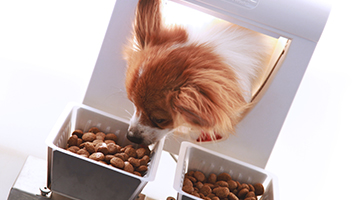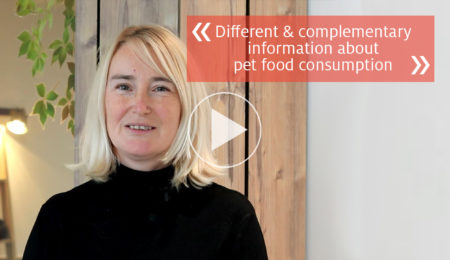Expert panels are conducted at animal centers with pets trained to take part in sensory tests. They are carried out by professional animal technicians and ethologists who observe and study feeding behaviors and preferences.
Because reliable information can be obtained only from healthy, happy, stress-free animals, it’s important that expert panels guarantee a pet-friendly environment and ensure animal well-being.
Expert panels are frequently used to perform versus tests to measure preference. They also offer options such as high-quality monadic tests, kinetics of consumption, or video observations of feeding behavior.
In-home panels measure palatability under real-life conditions. Feedback is gathered not only from the animal’s response to the food but also from owners’ observations of pet food performance and a pet’s enjoyment of the food.
In-home panels are conducted on an occasional basis and owners report feeding behaviors and preferences via questionnaires.
The protocol most frequently used for in-home panels is the monadic test as it corresponds to common feeding conditions there.
Implementing robust versus tests at home is more challenging as owners may have some issues interrupting the meal once one bowl has been finished.
One benefit of in-home panels is that they offer more flexibility for recruitment of segmented populations that target animals of specific breeds, sizes, or ages.
The drawback is that responses to in-home panels may be influenced by environmental variations as well as individual differences in pets and owners.
Take-home points
- Each type of panel is important in the pet food development process.
- Expert panels include secure and repeatable testing conditions and reliable and accurate answers about fine palatability differences during the conception stage.
- In-home panels are used at the end of the pet food development stage for final validation of the product.






* required fields